
Hundreds of visitors learn about Leiden University science during 3 October University
Glorious sunshine, dozens of enthusiastic academics and huge numbers of Leiden residents ensured that this year’s special jubilee version of 3 October University was a great success.
A bones lab, a climate casino, a game with myths and facts about the female brain and lots of other interesting aspects of science: it was all there. Visitors to Leiden University’s second Science Fair could watch, experience, play and listen to our research, and this resulted in a well-attended fair during the 450th anniversary celebration of the Relief of Leiden.
Gambling in a climate casino
‘We hear a lot about the ecological impact of clothing. What’s the best way to reduce that impact?’ For the occasion, climate scientist Joeri Reinders of Leiden University College has donned a croupier’s uniform and asks the question from behind a poker table. The four participants can place a bet (with playing cards and poker chips) on the right answer. Most of them bet on buying clothes made of sustainable cotton, but the right answer turns out to be: buying second-hand.
-
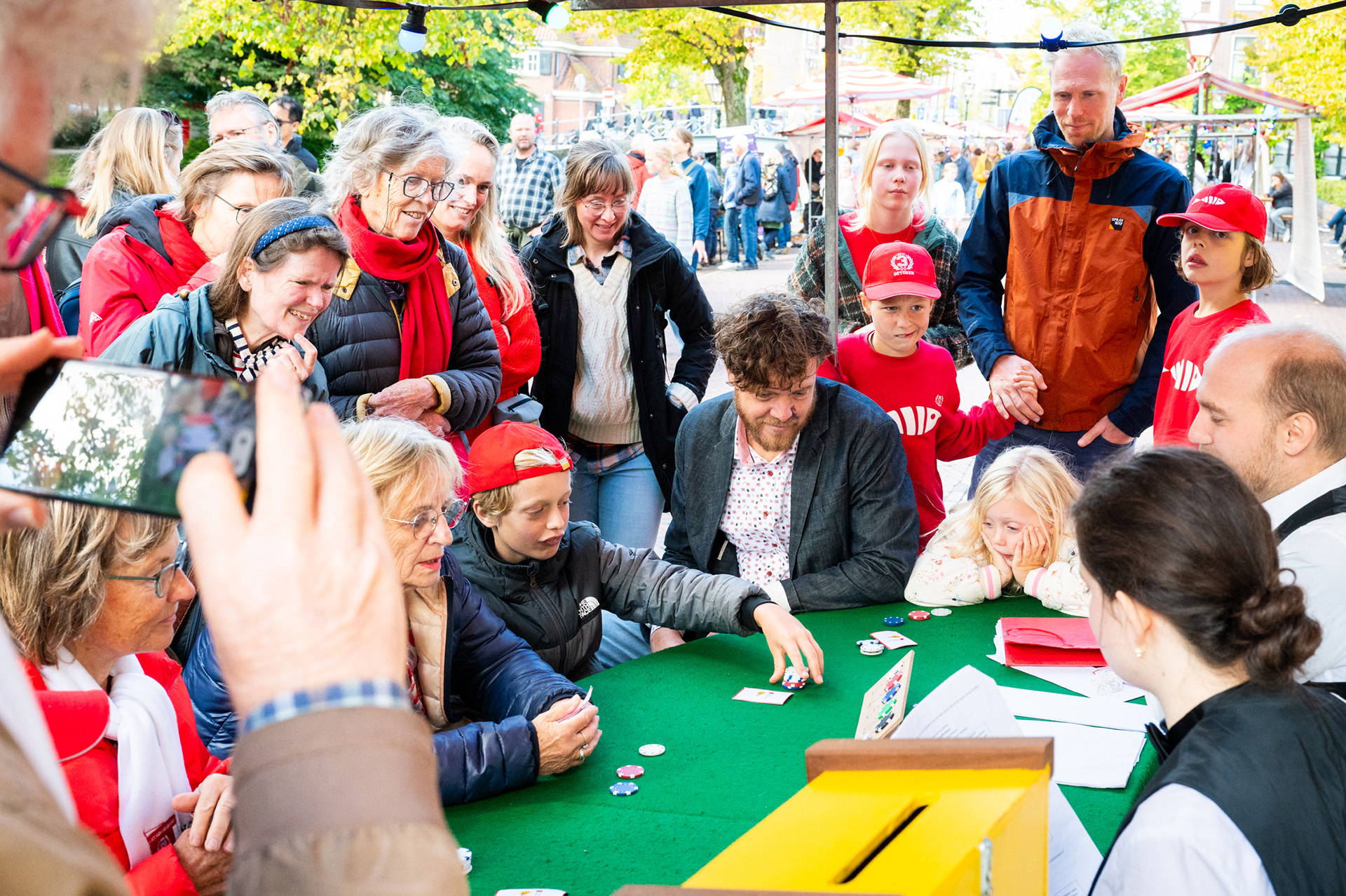
Many October 3 celebrants visited the WetenschapsWarenMarkt -
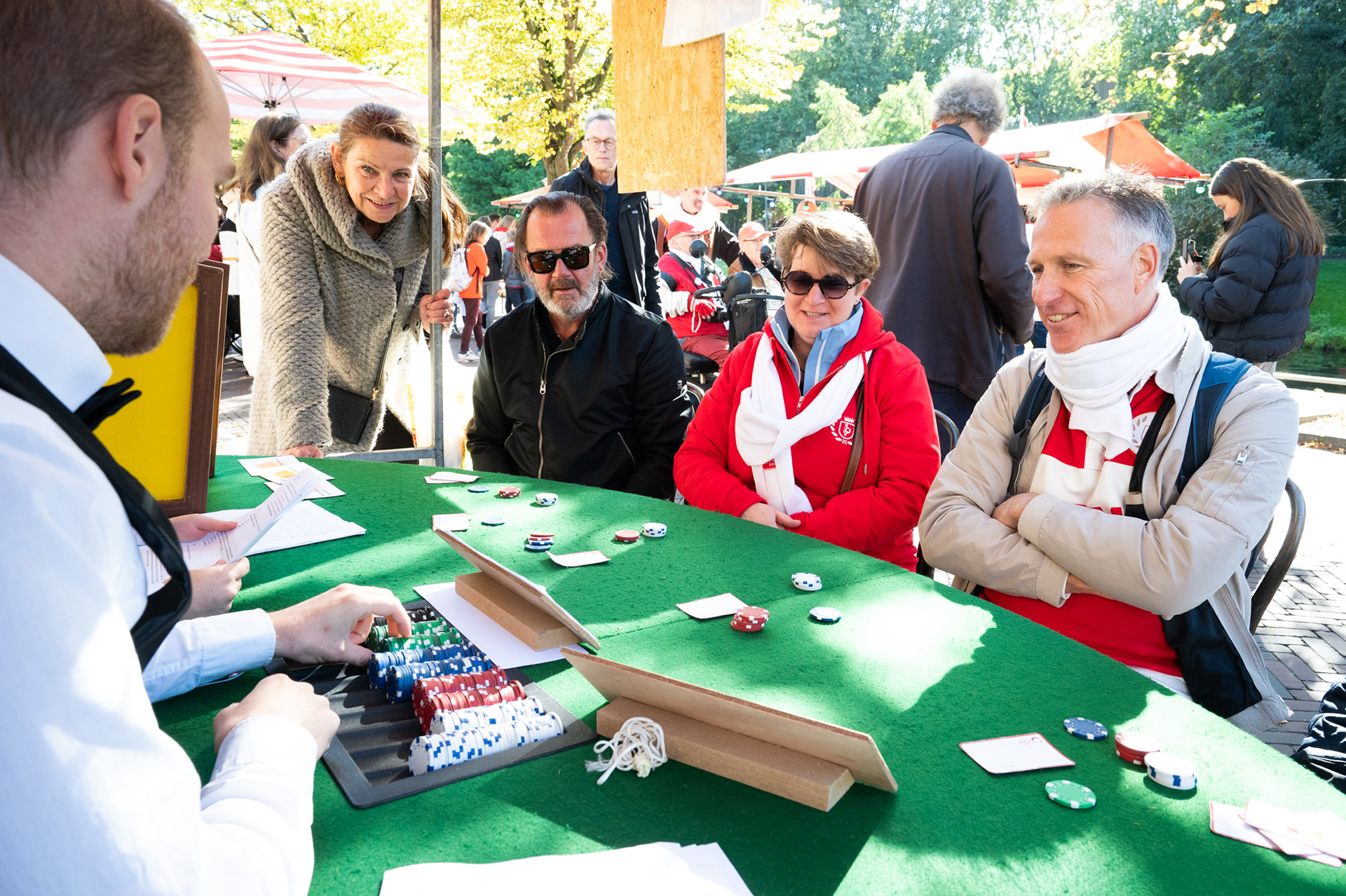
‘Croupier’ Joeri Reinders (left) hands out chips after a round of gambling -
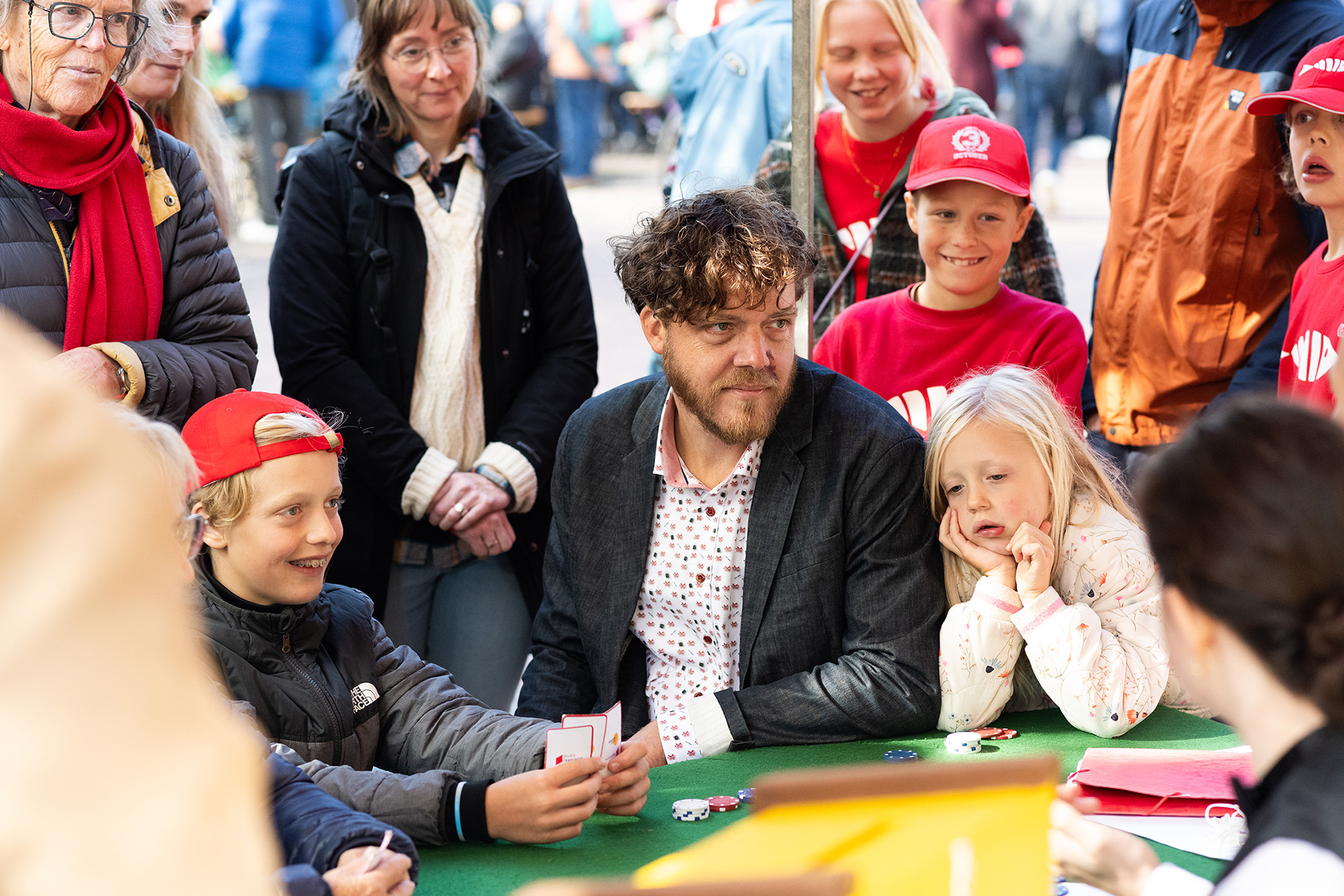
The right answer is listened to attentively
‘It’s actually very busy and people are very enthusiastic,’ says Reinders. ‘There have just been players aged ten years and seventy years at the table at the same time. People really want to win more chips, so they’re very open to learning. I just spoke to someone in teacher training for primary education, who would like to introduce this climate casino there too.’
'It’s very well organised and also fantastically interactive for the children'
Leiden resident Joost, dressed in a 3 October outfit, has just left the poker table. ‘It was very informative and also good fun to play. I got the question about clothing completely wrong. We’d just been to the street theatre and came across this Science Fair. It’s very well organised and also fantastically interactive for the children.’

Informative addition
This view is shared by Martine, a visitor who – together with her daughter – has just played a game about recognising fake news. ‘In fact, you need quite a lot of context to judge whether news is real or fake. I wasn’t actually very aware of this. We’ll be going to the funfair soon, but just to make a change, this is really a good and informative addition.’
A little further along, children are busy digging in a sandbox. They’re looking for human bones; not real ones, but reproductions. Archaeology PhD candidate Alex Tutwiler is watching all the activity with a big smile. ‘The excavated bones can be put together next to the sandbox to make a skeleton, our Boney Tony. We also have some bones and skulls here, and we ask people to guess whether they belong to a man or a woman. We spend a lot of time hidden away, doing research in our lab, so it’s great to be able to show people here what we do.’
-
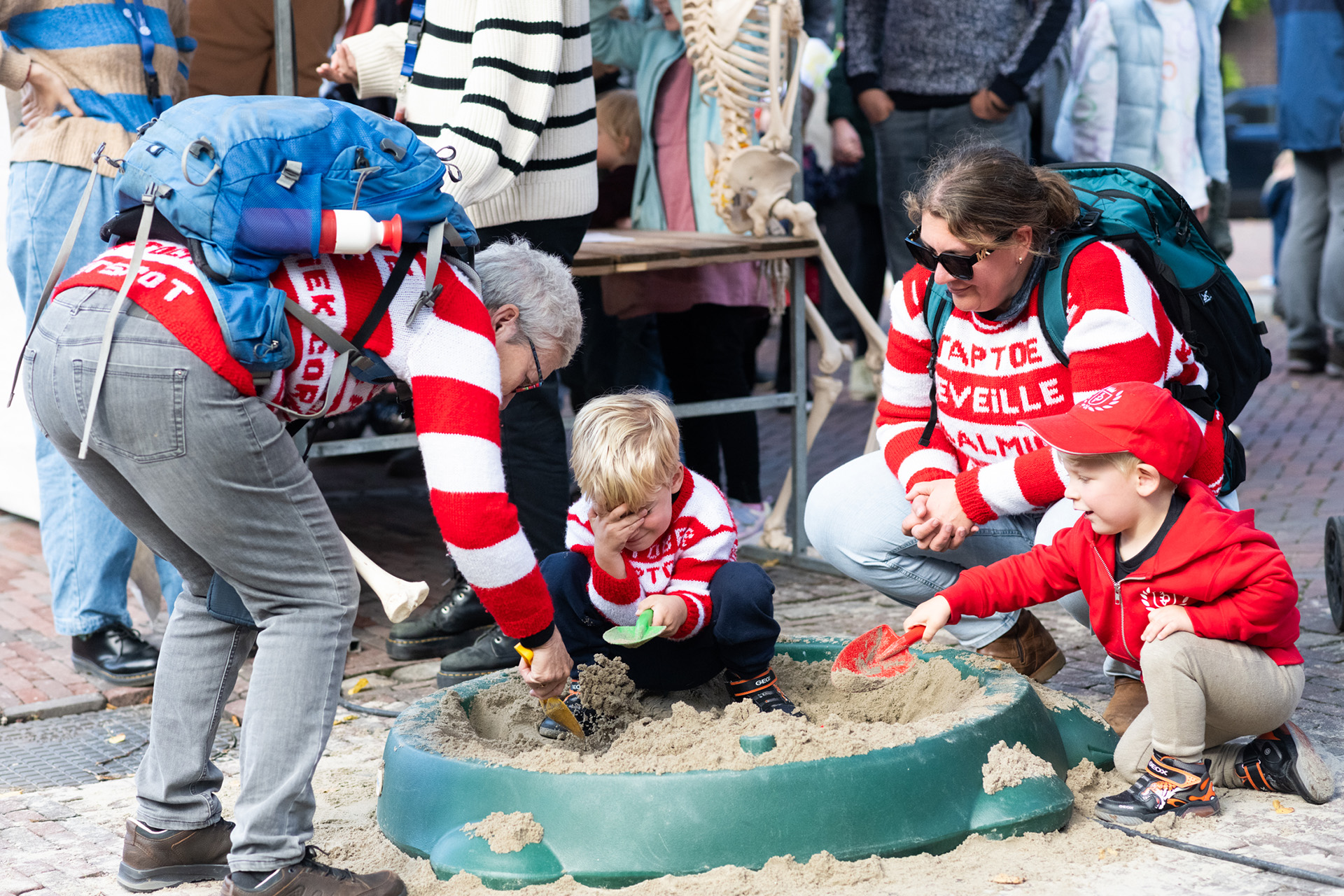
Young archaeologists in search of bones -
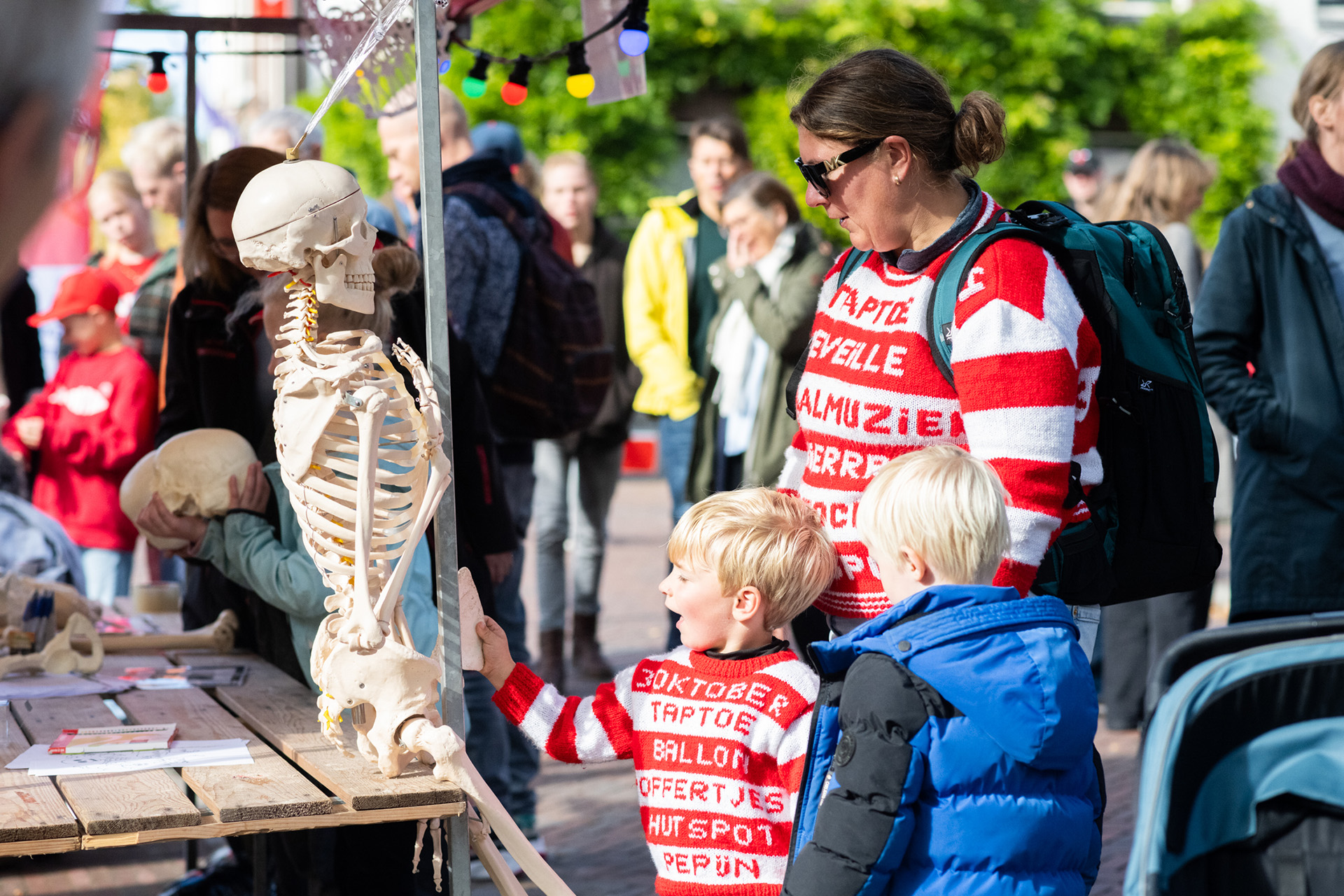
Where does this bone belong? -
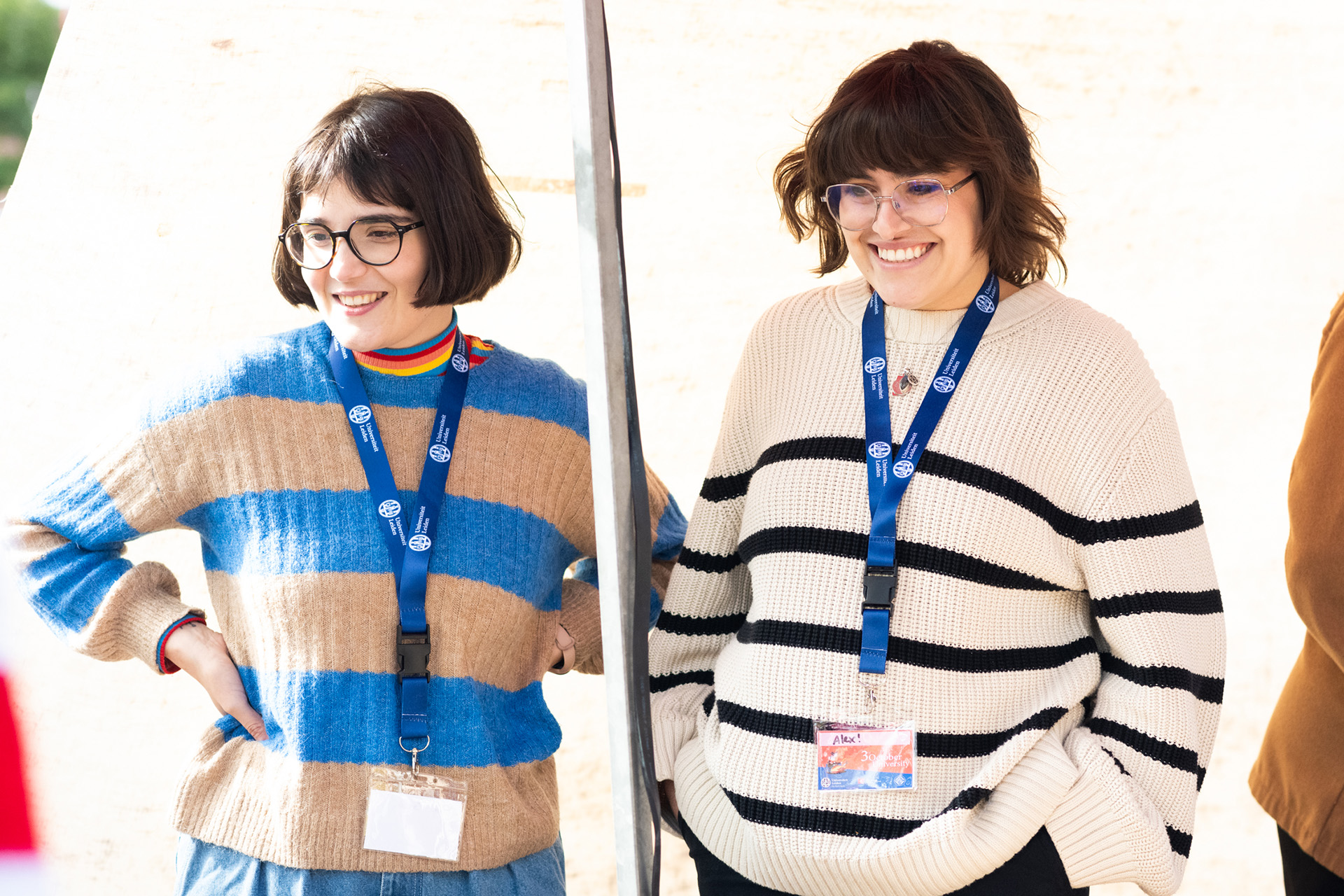
Archaeologist Alex Tutwiler (right) enjoys all the activity -
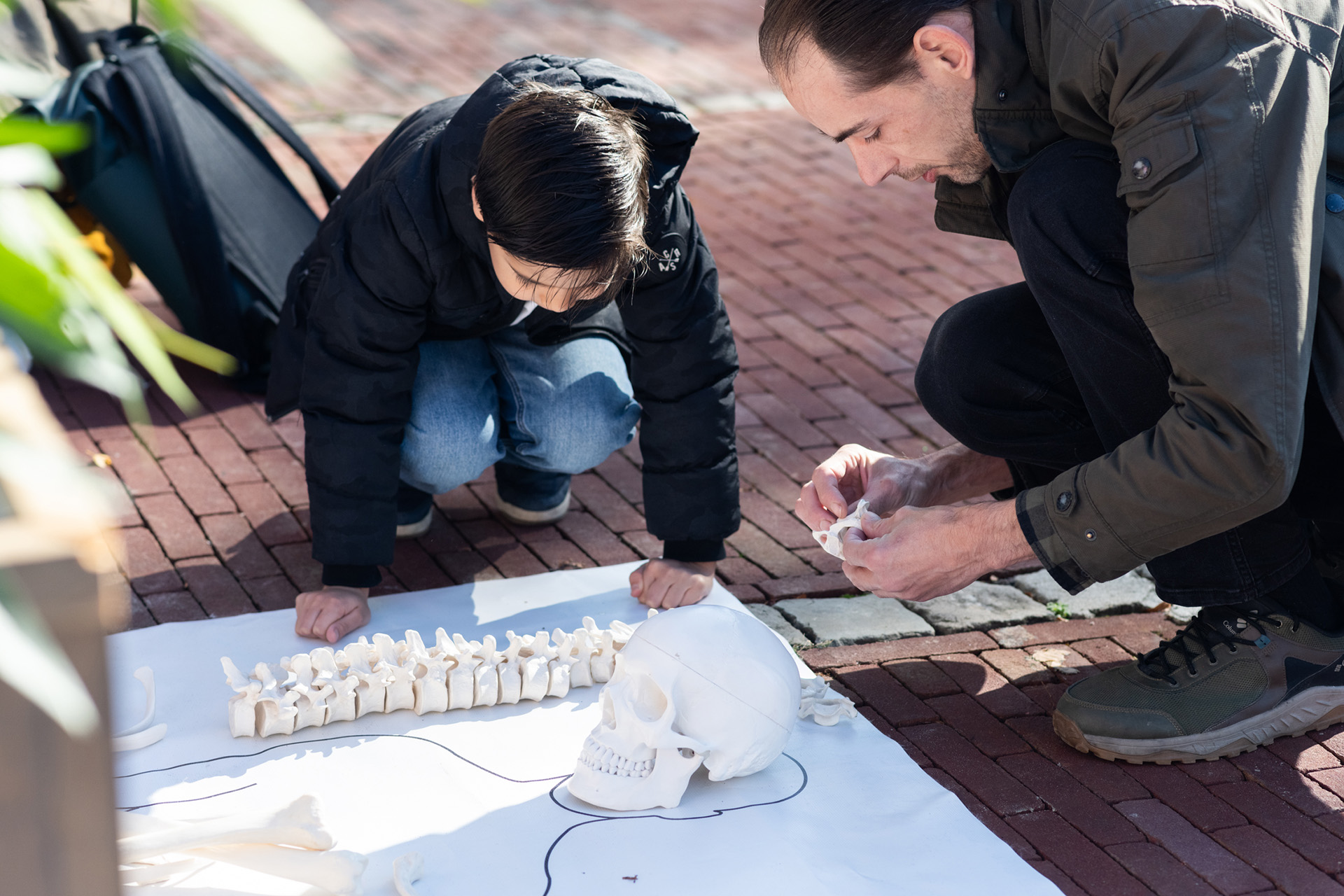
Boney Tony gets pieced together
In the middle of the fair, a father, mother and two sons are looking intently at a computer screen. They’re playing ‘a kind of ludo, but very old’, explains the older son Kian. ‘It means you actually learn something, because otherwise you just spend all your money at the funfair.’ His father nods in agreement. ‘In the past, there were many more different activities for 3 October. This Science Fair is a good addition.’

The female brain
In one of the stands there’s an enormous glass jar filled with tampons. Visitors can win a prize if they guess how many it contains. For researcher Federica Lucchi this is a good opportunity to speak about her research on the influence of hormones on the female brain. ‘There are many myths around female hormones. It’s not the case that puberty only begins for girls when they menstruate for the first time. A lot of hormonal changes take place before that.’
Lucchi is also enthusiastic about the 3 October University and can highly recommend participation next year. ‘You meet so many people, and visitors are genuinely interested and share their own stories. It’s important that we’re represented here, as the university; everything about the event makes me realise this.’
-
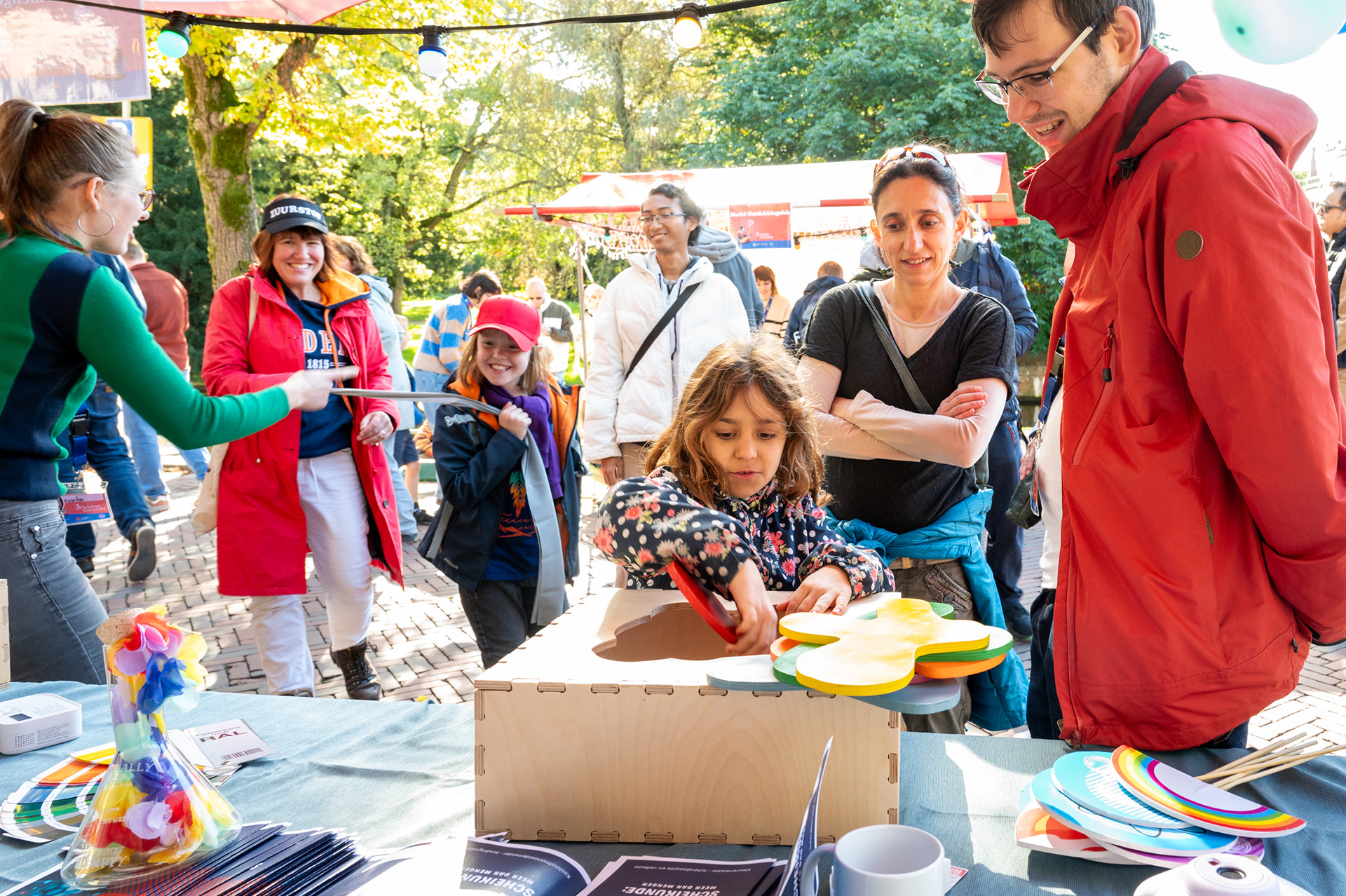
A love of physics and chemistry cannot start early enough -
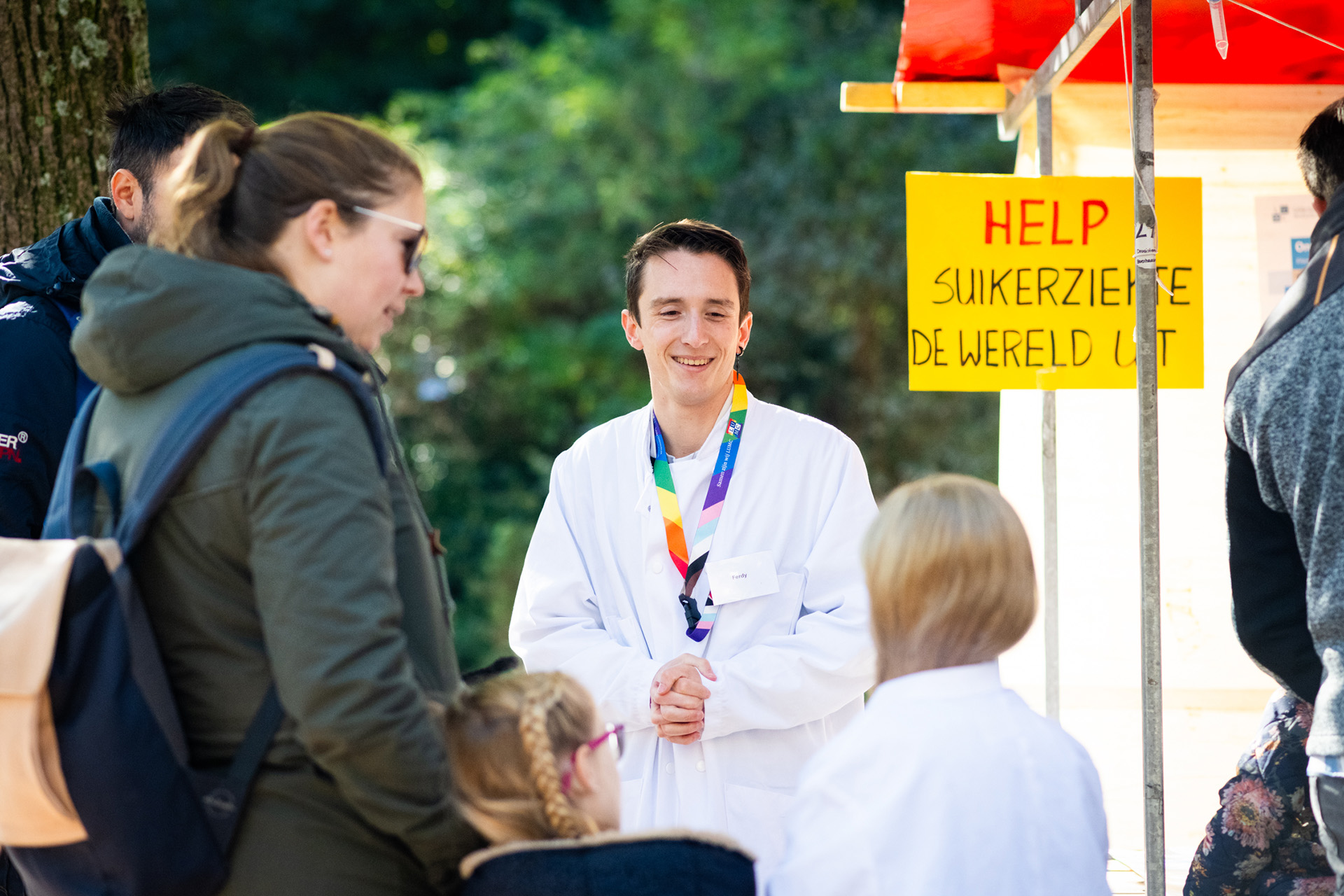
Working as a real researcher to solve diabetes -
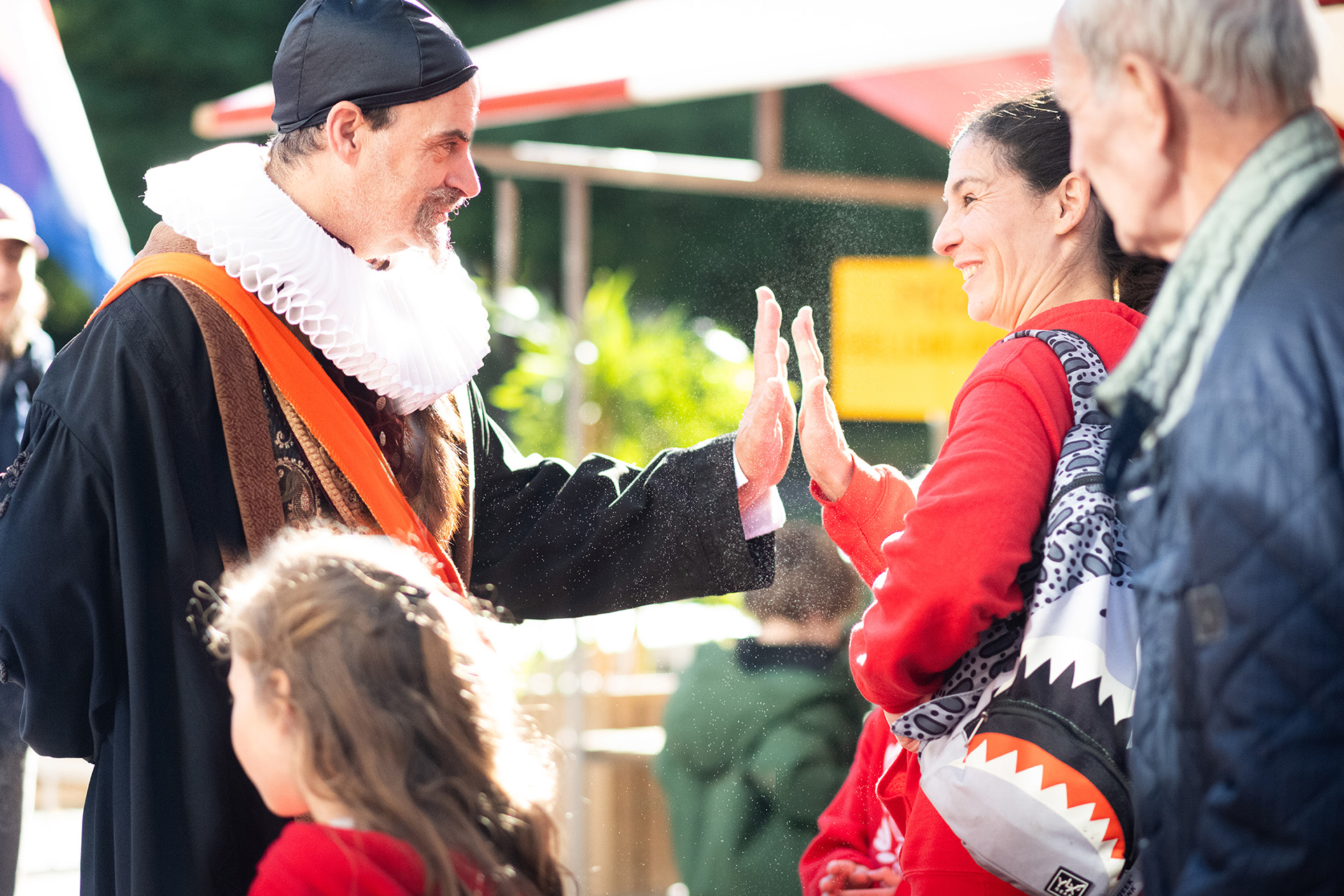
William of Orange showed visitors the way in the marketplace -
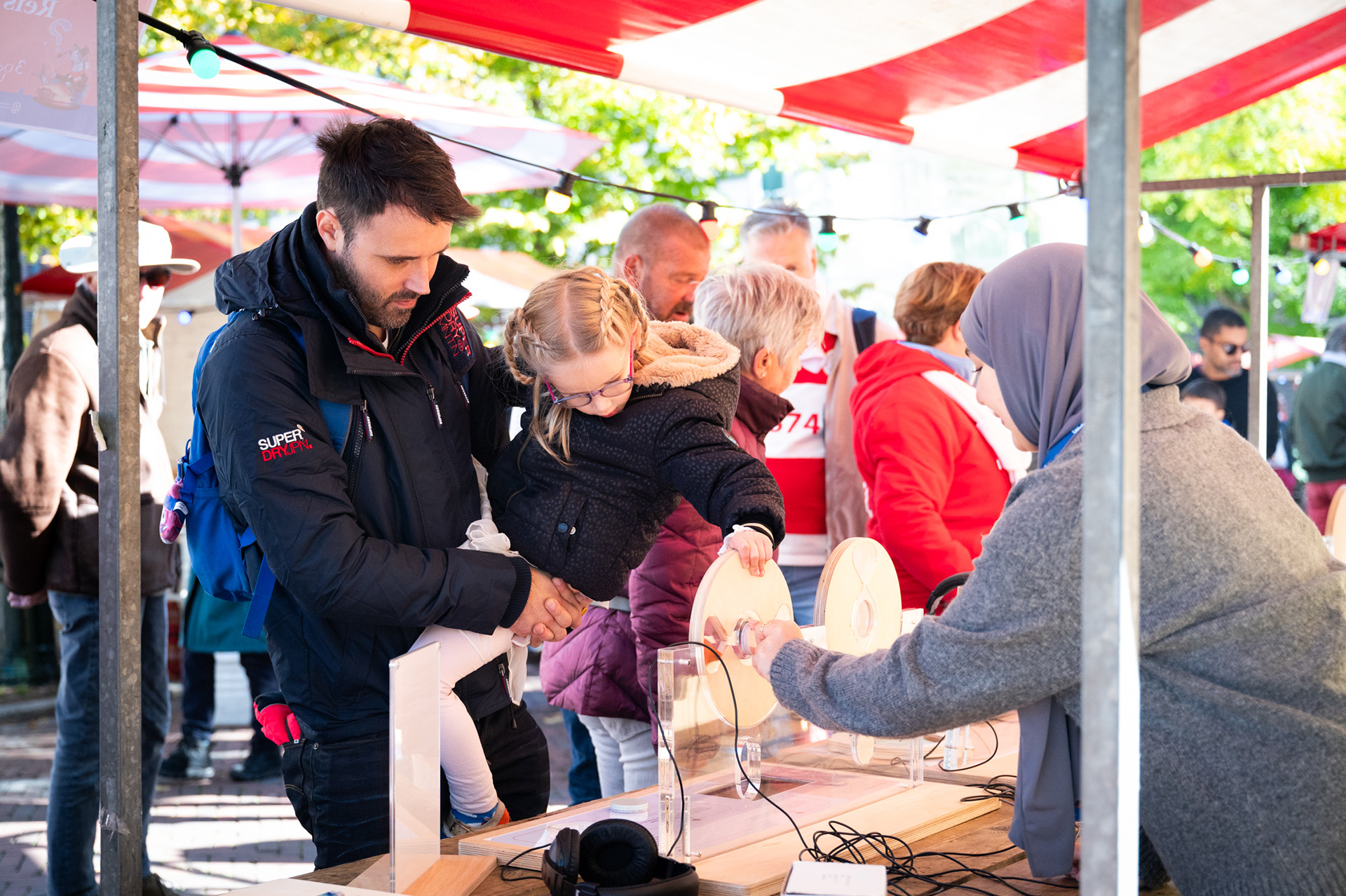
Explaining regenerative medicine: will we soon be making organs in the lab? -
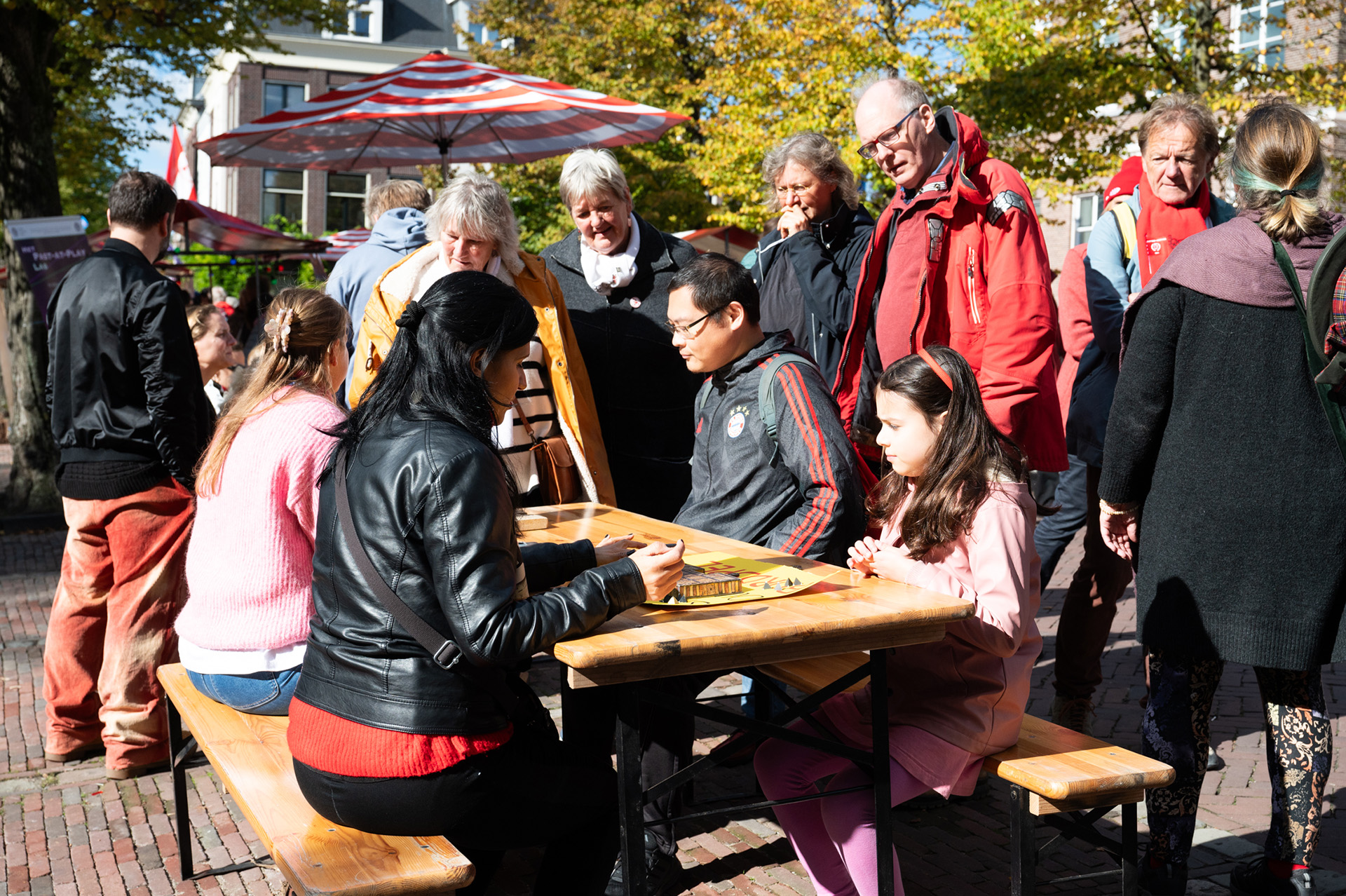
Discovering new science games
Join us next year?
If you’re an academic at Leiden University and would like to take part in our Science Fair next year, please contact science communication advisor Saskia van Reenen.
Text: Tim Senden
Photo's: Partrice Börger
